"The Age of Reconciliation" in the Middle East: the Place and Role of Russia
World 02:52 PM - 2023-08-06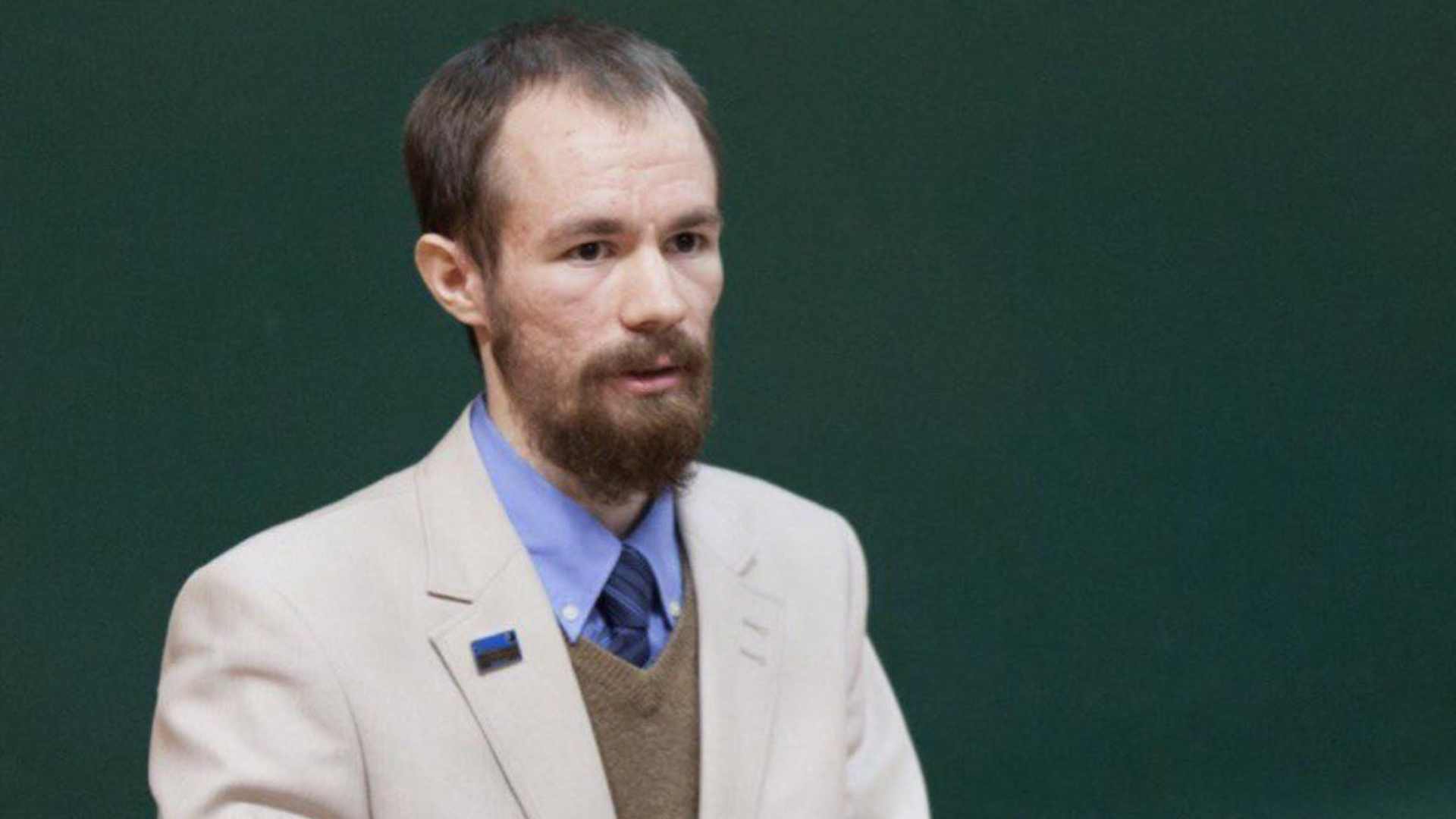 PUKMEDIA
PUKMEDIA
Russian Researcher, Vedeneev Ilia
Research by: Russian Researcher Vedeneev Ilia
I. Transition from a unipolar world to a multipolar oneFirst of all, we intend to gain a realistic picture of the Middle East - and the Kurds in particular - in the modern world. To this end, let us have a more detailed look at the entire system of international relations as it is. Undoubtedly, global politics is in a state of flux and it remains to be seen what direction the changes will take. Borrowing from complex systems theory, one can argue that the current system is experiencing a “bifurcation point”. This, in its turn, brings to the fore the factor of chance. In other words, it is at this turning point that the conditions may be ripe for the continuous flow of history to change.
Apparently, future historians may associate the transition to multipolarity with Russia’s special military operation in Ukraine. At present, this event seems key in mapping the contours of the future world order.
However, one has grounds to question the statement. On the one hand, it is obvious that the conflict in Ukraine is not the starting point but rather the crescendo of tensions between Russia and the West. By the latter, I mean the United States and European countries, that is, NATO. One can say the 2014 coup in Ukraine marked the start of the conflict between the two camps. At the same time, its origins may be traced back earlier than that, to the 2007 speech by Russian President Vladimir Putin also known as the Munich speech. He said that “The unipolar world that had been proposed after the Cold War did not take place”.[1]
On the other hand, the Ukraine crisis is not the only factor shaping the future. Perhaps, it is not even the most crucial one, even though it has been at the forefront of media attention across the globe and its outcome will determine Russia’s future. After all, Russia does not claim to be a global leader. It just wants to secure its national interests and enhance its security in the post-Soviet area.
Meanwhile, we are witnessing a downward spiral in relations between the US and China. Until recently, it was mainly the trade and economic spheres that saw the tensions between the two countries. But now the confrontation is obviously entering a new phase. While Western companies are joining the sanctions regime against China,[2] the Communist Party is taking measures to restrict exports of rare-earth elements to the US.[3]
Looking at all these things, it’s possible to say that maybe the shift from unipolarity to multipolarity has yet to reach a turning point. In other words, “decisive battles” may lie ahead of us. One cannot rule out the possibility of the current conflict between the US and China degenerating into something “hotter”. Apart from the punitive measures in the trade, economic and high-tech export fields, we should not forget another apple of discord, Taiwan. Both the American and Chinese governments have been keeping a close eye on the dynamics in Ukraine and preparing for a large-scale confrontation with each other. However serious the consequences may happen to be, one cannot reject the “hot war” scenario.
At this point, it’s premature to determine the outcome of the current struggle for “world-system hegemony” (in terms of the world-system approach). Yet one can say for sure that the United States has made Russia and China as close as ever, bringing their security cooperation at the very least to an unprecedented level.[4] It should also be noted that the US dollar’s dominant position in the global economy is being challenged,[5] as more countries - together with Russia and China – are seeking to find an alternative to the world’s reserve currency.
When it comes to Russia’s foreign policy narratives, it cannot be said that they have undergone a sea change. The 2007 Munich speech states that while considering the architecture of global security, “we must search for a reasonable balance between the interests of all participants in the international dialogue”.[6] Shortly before the military operation in Ukraine, Putin pointed out that the United States and NATO "had ignored fundamental Russian concerns".[7] In fact, the president was referring to the West’s response to Russia’s request in December 2021. I would like to remind you that those security guarantees included a ban on NATO’s eastward expansion.[8] However, the West or primarily US failure to reckon with Russia’s national interests resulted in a military operation in Ukraine.
It is noteworthy that shortly after the start of the military operation Russia made a last-ditch attempt to get the security guarantees from the West peacefully. During the Istanbul talks in April 2022, Ukraine and Russia made some progress on a peace plan stipulating that Ukraine would declare its neutrality. Despite being initialed by the Ukrainian government, the agreement never took effect.[9] As soon as Russian troops left the Kiev region, Ukraine consigned the deal to the dustbin of history.
As of now, it can be noted that the objectives of the military campaign remain unchanged. As Russian Foreign Minister Sergey Lavrov put it, “we cannot and will never give up the goals that were announced as part of the Special Military Operation”.[10] At the same time, the Ukraine counteroffensive hyped by the Western mass media has so far failed to achieve its goals “in any direction”.[11]
II. "Age of Reconciliation" in the Middle East. Position and role of RussiaMoving on to the Middle East, I would state that it is undergoing a radical transformation as well. Although this – to a certain extent - has something to do with the Ukraine crisis, the regional factors seem more predominant.
Here it is worth mentioning the resumption of ties between Iran and Saudi Arabia brokered by China. Both countries are the two powerhouses, each claiming to be a regional leader. In line with the interests of both China and Russia, the current rapprochement will help to defuse tensions on the regional scale. This, in its turn, will be a prerequisite for stabilizing the situation in Yemen and putting an end to the armed conflict there.
Another thing is Turkey’s willingness to mend fences with its neighbors, namely Syria, Egypt and Israel. As the third country with growing regional ambitions, it is stepping up its economic partnership with the Gulf states. Faced with economic upheavals, Erdogan’s government has given much priority to attracting foreign investment.[12] In May 2023, the People's Alliance, led by the Turkish leader’s Justice and Development (AK) Party and the Nationalist Movement Party (MHP), managed to secure a majority of seats in the Turkish parliament, which suggests that the broad public trust Erdogan’s political and economic judgments. And this is despite the fact that the current economic slowdown is a product of the government’s policies.
Actually, Erdogan’s victory has played into Moscow’s hands. On the one hand, this is the case because of the Russia-Turkey active cooperation. Now their relations are better than at any point in history, except for Turkey's fight for independence at the beginning of the 20th century. On the other hand, strategically speaking, Russia, a champion of a multipolar world, may benefit from the emergence of an increasing number of powerhouses on the world stage. It wants as many countries as possible to pursue an independent foreign policy rather than focus on Washington, even if the negotiations with them are fraught with difficulty (as is with Erdogan). This way of thinking is equally relevant to other - primarily non-Western - countries, such as Saudi Arabia and Qatar.
The next point that I would like to highlight is that Russian presence in the Middle East is of great importance. Since the country launched a military operation in Syria at the request of the Assad government, its regional influence has increased. Following this, ties between Russia and Saudi Arabia have taken a completely new turn. That goes for the cooperation with Qatar, as evidenced by the visit of the country’s Prime Minister and Minister of Foreign Affairs to Moscow in June 2023. Apart from this, the partnership with the UAE is actively developing as well. A good illustration of this is that the Emirates became one of the biggest destinations for Russian gold in 2022, with the imports amounting to 75.7 tonnes worth $4.3 billion - up from just 1.3 tonnes during 2021.[13] At the same time, the UAE has become the second most popular destination for Russian tourists, with Turkey ranking first on the list.[14] As for other “conciliatory” initiatives in the region, they include building bridges between Iran and Egypt, as well as between the UAE and Qatar.
The given trends testify to the region’s desire for stabilization, which also serves the interests of Russia and China, the two non-Western players. Although all regional countries strive for peace and harmony, we cannot discard certain ongoing conflicts on the ground. The Arab-Israeli conflict has waxed and waned for many decades. Iran and Israel are still at odds with each other. Libya, Somalia and Yemen remain trouble spots. When it comes to Russia and Turkey, it would be wrong to state that they enjoy trouble-free relations. Having said that, Russian diplomacy is calibrated enough to reasonably reconcile the interests of different parties, which is well exemplified by the multilateral negotiations on bringing peace to Syria.
Now let me elaborate on the post-war settlement in Syria. In fact, Russia places a premium on the reestablishment of Turkey-Syria relations. On the one hand, the Assad government has weathered the shocks of the civil war, not least because of Russia’s military assistance. On the other hand, it still needs international recognition. Here I am referring to the lifting of Western sanctions. Definitely, some progress has already been made: in June 2023, the Arab League reinstated Syria’s membership.[15]
It is worth highlighting Ankara’s special role in the peace process in Damascus. For starters, as they are the closest neighbors, the turmoil in Syria has significantly affected Turkey. For instance, the migration crisis became an item on the agenda during the recent elections held in Turkey. Given the fact that at the very onset of the civil war in Syria Ankara embarked on a course that attempted to topple Assad, now the country seems to be reaping what it sowed. As for Russia, it should be credited with convincing Turkey’s leadership to embrace its approach to the Syrian peace process.
Secondly, Turkey profoundly influences the security situation in Syria. On the one hand, it still backs the groupings in Syria that are opposed to the incumbent government.[16] On the other hand, there is much uncertainty about the Autonomous Administration of North and East Syria also known as Rojava. The autonomy’s armed forces, that is, the Syrian Democratic Forces (SDF), are designated terrorists by Turkey. Moreover, Ankara does not distinguish between the Syrian Kurds from the SDF and the Turkish Kurds from the Kurdistan Workers' Party (PKK). It has repeatedly dismissed the SDF forces deployed near its border with Syria as unacceptable for Turkish national security. Ankara has so far launched a number of military operations in Syria to remove the Syrian Kurds from the border and create a buffer zone there.
Similar measures have been adopted in northern Iraq. It has become common for Turkey to organize annual military operations aimed at suppressing the PKK’s militants and preventing their infiltration into Turkish territory. Last year, Ankara made some advances in its fight against the PKK in northern Iraq. Additionally, some parts in northern Syria are also under direct Turkish control. Interestingly enough, Erdogan’s government refuses to withdraw its troops from the region until the SDF has been eliminated. Damascus, however, frames the withdrawal of all Turkish troops from its territory as a prerequisite for the restoration of relations. As a result, both sides have reached an impasse, despite constant contacts and active mediation by Russia.
Specifically, late last year Moscow hosted a meeting that brought together the heads of the Turkish and Syrian armed forces and intelligence services.[17] Ankara was represented by Hakan Fidan, who was in charge of the National Intelligence Organization back then. Following the elections, he was named Turkish Foreign Minister. As he was responsible for maintaining contacts with Syria in the absence of diplomatic relations, it is reasonable to assume that his recent appointment may indicate Turkey’s readiness to normalize its relations with Syria.
As a recap, the “Kurdish factor” in Syria turns out to be an obstacle to the Syrian settlement. As far as one can judge, Damascus is not going to give any autonomy to the Kurds. And this is not least because Ankara has taken an uncompromising stance on both the PKK and Rojava. It is no secret that the Turkish leadership fears that the success of the Syrian Kurds’ national project will boost nationalist sentiments of the Kurds residing in Turkey. In this context, Iran is on the same page with Turkey, as the former is one of the four countries (besides Iraq, Syria and Turkey) that divided the ethno-geographical area of Kurdistan in the first half of the 20th century.
When it comes to the Syria crisis, Iran supported the Assad government during the civil war. Nowadays Tehran is an active party to the peace talks on Syria called the Astana Platform including Russia, Turkey, and Syria. Although Kazakhstan has announced that it is no longer possible to hold meetings in Astana,[18] the dialogue itself will not suffer much. The parties are bound by common interests like the necessity to bring an end to the devastating conflict in Syria and contribute to the stabilization of the region at large.
III. Kurdish question and (intra-)Kurdish contradictionsI would like to reiterate that the ethno-geographical area of Kurdistan attracts close attention from Russian experts. We have already mentioned the Turkish military crackdown on the PKK and the SDF in northern Iraq and Syria. And now let us take a closer look at the situation on the ground.
Unfortunately, Iraqi Kurdistan remains embattled. On the one hand, there is a clash of interests between Baghdad and the Kurdish Autonomy, represented predominantly by the Kurdistan Democratic Party (KDP). On the other hand, the two largest political parties of the Iraqi Kurds – the KDP and the Patriotic Union of Kurdistan (PUK) – are at loggerheads with each other. This is compounded by the Paris court ruling which banned oil exports from Iraqi Kurdistan and deprived the Autonomy of its independent source of income.
Regarding the recently adopted three-year federal budget, it obliges “the semi-autonomous Kurdish region to deliver 400,000 barrels per day (bpd) to the federal authorities, along with non-oil revenues, before it can receive a share of nearly 12 percent of the federal budget”. Another thing is that the oil revenues will have to go to a Central Bank account belonging to the Iraqi Ministry of Finance. To be frank, this is not consistent with the previous agreement between the Autonomy’s leaders and Iraqi Prime Minister Mohammed Shayya' Sabbar Al-Sudani, as regional media reported.[19]
When it comes to resuming oil exports from the Autonomy – I mean to Turkey and through the Turkish port of Ceyhan to the international market – there is some evidence that a top Turkish delegation may pay a visit to Baghdad in the near future. Perhaps Erdogan himself will be a member of this delegation. Fundamentally speaking, Turkey does not oppose the resumption of oil exports by Iraqi Kurdistan, but it is possible that Ankara will try to negotiate a reduction of the $1.5 billion fine imposed by the Paris arbitration court. Some observers would say that the Kurds are under siege from Ankara and Baghdad.
Finally, I would like to expand upon the prospects for the upcoming elections in the Autonomy. In the eyes of observers, the future looks quite uncertain. On the one hand, the elections were postponed due to the political crisis last summer, so they are supposed to be held this year. On the other hand, there is some controversy surrounding the initial stage of preparing for the voting procedure. This is evident in the conflict over the Independent High Commission for Elections and Referendum.
Unfortunately, the prospects for Iraqi Kurdistan, whether we like it or not, are clouded by the differences among the Kurds themselves. This does not mean that the external factors do not matter here. As I have already said, both Ankara and Baghdad are willing to pursue their own – often divergent – policies in the region. However, international observers are quite worried about the conflicts persisting within the Kurdish Autonomy. In fact, the sustainability of the Kurdish autonomy project in Iraq is being called into question.
IV. Bibliography
1. Выступление и дискуссия на Мюнхенской конференции по вопросам политики безопасности // Президент России. 10.02.2007. URL: http:// www.kremlin.ru/events/president/transcripts/24034 (дата обращения: 20.07.2023)
2. Выступление Министра иностранных дел Российской Федерации С.В. Лаврова на встрече с руководителями российских некоммерческих организаций, Москва, 19 июля 2023 года // Министерство иностранных дел Российской Федерации. 19.07.2023. URL: https://www.mid.ru/ru/foreign_policy/news/1897750/ (дата обращения: 20.07.2023) Договор между Российской Федерацией и Соединенными Штатами Америки о гарантиях безопасности // Министерство иностранных дел Российской Федерации. 17.12.2021. URL: https://www.mid.ru/ru/foreign_policy/rso/nato/1790818/ (дата обращения: 20.07.2023)
3. Доля доллара США в международных расчетах снизилась в 2023 году до 40% // ТАСС. 15.02.2023. URL: https://tass.ru/ekonomika/1705 9745 (дата обращения: 20.07.2023)
4. Комментарий МИД РК к итогам 20-й Международной встречи высокого уровня по Сирии в Астанинском формате // МИД Республики Казахстан. 22.06.2023 URL: https://www.gov.kz/memleket/ entities/mfa/press/news/details/578402?lang=ru (дата обращения: 25.06.2023) Пекин заявил, что США дают неправильную оценку межармейским контактам Китая и России // ТАСС. 16.05.2023. URL: https://tass.ru/mezhdunarodnaya-panorama/17758031 (дата обращения: 20.07.2023)
5. Путин впервые показал проект стамбульского договора РФ с Украиной // Российская газета. 17.06.2023. URL: https://rg.ru/2023/06/ 17/reg-szfo/putin-vpervye-pokazal-proekt-stambulskogo-dogovora-rf-s-ukrainoj.html (дата обращения: 20.07.2023)
6. Путин: Запад проигнорировал принципиальные требования РФ в ответах по безопасности // ТАСС. 01.02.2022. URL: https://tass.ru/ politika/13586841 (дата обращения: 20.07.2023)
7. Семёнов К. Идлиб преткновения. Как примирить Сирию и Турцию // Регнум. 23.06.2023 URL: https://regnum.ru/article/3815089 (дата обращения: 26.06.2023)
8. Соглашение о мерах обеспечения безопасности Российской Федерации и государств-членов Организации Североатлантического договора // Министерство иностранных дел Российской Федерации. 17.12.2021. URL: https://www.mid.ru/ru/foreign_policy/rso/nato/1790 803/ (дата обращения: 20.07.2023)
9. Эмираты заняли второе место в российском выездном туризме. Что будет в 2023 году? // Ассоциация туроператоров. 02.03.2023 URL: https://www.atorus.ru/node/51586 (дата обращения: 25.06.2023)
10. Arab League Brings Syria Back into Its Fold after 12 years // Al Jazeera. 07.05.2023. URL: https://www.aljazeera.com/news/2023/5/7/arab-league -agrees-to-bring-syria-back-into-its-fold (дата обращения: 26.06.2023)
11. China Restricts Exports of Chip-Making Metals Gallium and Germanium // Market Watch. 03.07.2023. URL: https://www.marketwatch.com/story/ china-imposes-export-control-on-gallium-germanium-related-item-c94a4867 (accessed: 20.07.2023)
12. Exclusive: From Russia with Gold: UAE Cashes in as Sanctions Bite // Reuters. 25.05.2023 URL: https://www.reuters.com/markets/russia -with-gold-uae-cashes-sanctions-bite-2023-05-25/ (дата обращения: 25.06.2023)
13. Iraqi Parliament Approves Record $153 Billion Budget Bill after Arduous Debate // The New Arab. 13.06.2023. URL: https://www.new arab.com/news/iraq-finally-passes-record-breaking-budget-after-long-debate (accessed: 20.07.2023)
14. Netherlands, Home to a Critical Chip Firms, Follows U.S. with Export Curbs on Semiconductor Tools // CNBC. 30.06.2023. URL: https://www. cnbc.com/2023/06/30/netherlands-follows-us-with-semiconductor-export-restrictions-.html (accessed: 20.07.2023)
15. Turkey’s Erdogan Signs $50 Billion in Deals during UAE Visit // Reuters. 19.07.2022. URL: https://www.reuters.com/world/middle-east/turkeys -erdogan-ends-gulf-tour-with-abu-dhabi-visit-2023-07-19/ (accessed: 20.07.2023)
16. Turkey-Syria Meeting: No Deals made at the First High-Level Talks in 11 Years // Middle East Eye. 02.01.2023 URL: https://www.middle easteye.net/news/turkey-syria-meeting-no-deals-made-first-high-level-talks (дата обращения: 26.06.2023)
[1] Выступление и дискуссия на Мюнхенской конференции по вопросам политики безопасности // Президент России. 10.02.2007. URL: http://www.kremlin.ru/events/president/transcripts/24034 (дата обращения: 20.07.2023)
[2] Netherlands, Home to a Critical Chip Firms, Follows U.S. with Export Curbs on Semiconductor Tools // CNBC. 30.06.2023. URL: https://www.cnbc.com/2023/06/30/netherlands-follows-us-with-semiconductor-ex port-restrictions-.html (accessed: 20.07.2023)
[3] China Restricts Exports of Chip-Making Metals Gallium and Germanium // Market Watch. 03.07.2023. URL: https://www.marketwatch.com/story/china-imposes-export-control-on-gallium-germanium-related-item-c94a4867 (accessed: 20.07.2023)
[4] Пекин заявил, что США дают неправильную оценку межармейским контактам Китая и России // ТАСС. 16.05.2023. URL: https://tass.ru/mezhdunarodnaya-panorama/17758031 (дата обращения: 20.07.2023)
[5] Доля доллара США в международных расчетах снизилась в 2023 году до 40% // ТАСС. 15.02.2023. URL: https://tass.ru/ekonomika/17059745 (дата обращения: 20.07.2023)
[6] Выступление и дискуссия на Мюнхенской конференции по вопросам политики безопасности // Президент России. 10.02.2007. URL: http://www.kremlin.ru/events/president/transcripts/24034 (дата обращения: 20.07.2023)
[7] Путин: Запад проигнорировал принципиальные требования РФ в ответах по безопасности // ТАСС. 01.02.2022. URL: https://tass.ru/politika/13586841 (дата обращения: 20.07.2023)
[8] Договор между Российской Федерацией и Соединенными Штатами Америки о гарантиях безопасности // Министерство иностранных дел Российской Федерации. 17.12.2021. URL: https://www.mid.ru/ru/ foreign_policy/rso/nato/1790818/ (дата обращения: 20.07.2023); Соглашение о мерах обеспечения безопасности Российской Федерации и государств-членов Организации Североатлантического договора // Министерство иностранных дел Российской Федерации. 17.12.2021. URL: https://www.mid.ru/ ru/foreign_policy/rso/nato/1790803/ (дата обращения: 20.07.2023)
[9] Путин впервые показал проект стамбульского договора РФ с Украиной // Российская газета. 17.06.2023. URL: https://rg.ru/2023/06/17/reg-szfo/putin-vpervye-pokazal-proekt-stambulskogo-dogovora-rf-s-ukrainoj. html (дата обращения: 20.07.2023)
[10] Выступление Министра иностранных дел Российской Федерации С.В. Лаврова на встрече с руководителями российских некоммерческих организаций, Москва, 19 июля 2023 года // Министерство иностранных дел Российской Федерации. 19.07.2023. URL: https://www.mid.ru/ru/foreign_policy/news/ 1897750/ (дата обращения: 20.07.2023)
[11] ВСУ не достигли целей ни на одном из направлений наступления, заявил Шойгу // РИА Новости. 03.07.2023. URL: https://ria.ru/20230703/kontrnastuplenie-1881891516.html (дата обращения: 20.07.2023)
[12] Turkey’s Erdogan Signs $50 Billion in Deals during UAE Visit // Reuters. 19.07.2022. URL: https://www. reuters.com/world/middle-east/turkeys-erdogan-ends-gulf-tour-with-abu-dhabi-visit-2023-07-19/ (accessed: 20.07.2023)
[13] Exclusive: From Russia with Gold: UAE Cashes in as Sanctions Bite // Reuters. 25.05.2023 URL: https://www.reuters.com/markets/russia-with-gold-uae-cashes-sanctions-bite-2023-05-25/ (дата обращения: 25.06.2023)
[14] Эмираты заняли второе место в российском выездном туризме. Что будет в 2023 году? // Ассоциация туроператоров. 02.03.2023 URL: https://www.atorus.ru/node/51586 (дата обращения: 25.06.2023)
[15] Arab League Brings Syria Back into Its Fold after 12 years // Al Jazeera. 07.05.2023. URL: https://www. aljazeera.com/news/2023/5/7/arab-league-agrees-to-bring-syria-back-into-its-fold (accessed: 26.06.2023)
[16] Семёнов К. Идлиб преткновения. Как примирить Сирию и Турцию // Регнум. 23.06.2023 URL: https:// regnum.ru/article/3815089 (дата обращения: 26.06.2023)
[17] Turkey-Syria Meeting: No Deals made at the First High-Level Talks in 11 Years // Middle East Eye. 02.01.2023 URL: https://www.middleeasteye.net/news/turkey-syria-meeting-no-deals-made-first-high-level -talks (дата обращения: 26.06.2023)
[18] Комментарий МИД РК к итогам 20-й Международной встречи высокого уровня по Сирии в Астанинском формате // МИД Республики Казахстан. 22.06.2023 URL: https://www.gov.kz/memleket/ entities/mfa/press/news/details/578402?lang=ru (дата обращения: 25.06.2023)
[19] Iraqi Parliament Approves Record $153 Billion Budget Bill after Arduous Debate // The New Arab. 13.06.2023. URL: https://www.newarab.com/news/iraq-finally-passes-record-breaking-budget-after-long-debate (accessed: 20.07.2023)
PUKMEDIA
More news
-
Congratulatory Messages on International Labour Day
01:28 PM - 2024-05-01 -
Four Kurdish Factions Reject the Postponement of Kurdistan Parliamentary Elections
07:28 PM - 2024-04-30 -
UAE Classifies Khor Mor Attack as Terrorism, International Violation
07:49 PM - 2024-04-27 -
Officials Call for Urgent Investigation Into Khor Mor Gas Field Attack
10:31 PM - 2024-04-26
see more
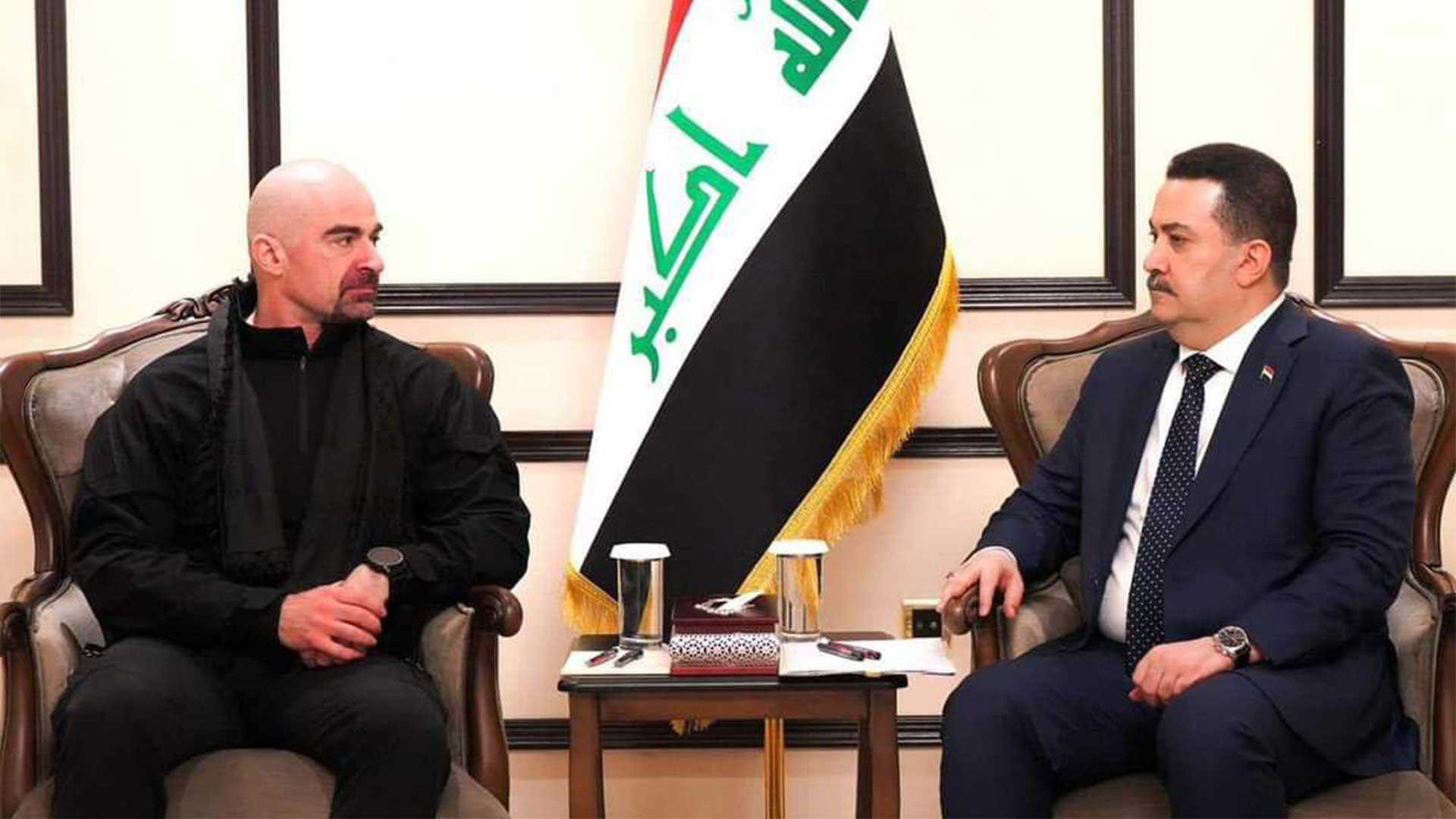
P.U.K 04:18 PM - 2024-05-03 President Bafel & al-Sudani: The Cornerstone for Overcoming Obstacles Should Be Applicable Laws
Qubad Talabani: Journalists Play a Crucial Role in Maintaining Democracy
01:54 PM - 2024-05-03
Ziad Jabar: Kurdistan Region Needs Effective Government & Parliament
02:56 PM - 2024-05-02
PUK Politburo: We Oppose Any Unfair Attempts to Delay the Scheduled Elections
12:17 AM - 2024-05-02
Rewaz Fayaq: We Must Not Lose the Opportunity of Conducting Elections
10:55 PM - 2024-05-01
Most read
-
Qubad Talabani: Journalists Play a Crucial Role in Maintaining Democracy
Kurdistan 01:54 PM - 2024-05-03 -
President Bafel & al-Sudani: The Cornerstone for Overcoming Obstacles Should Be Applicable Laws
P.U.K 04:18 PM - 2024-05-03

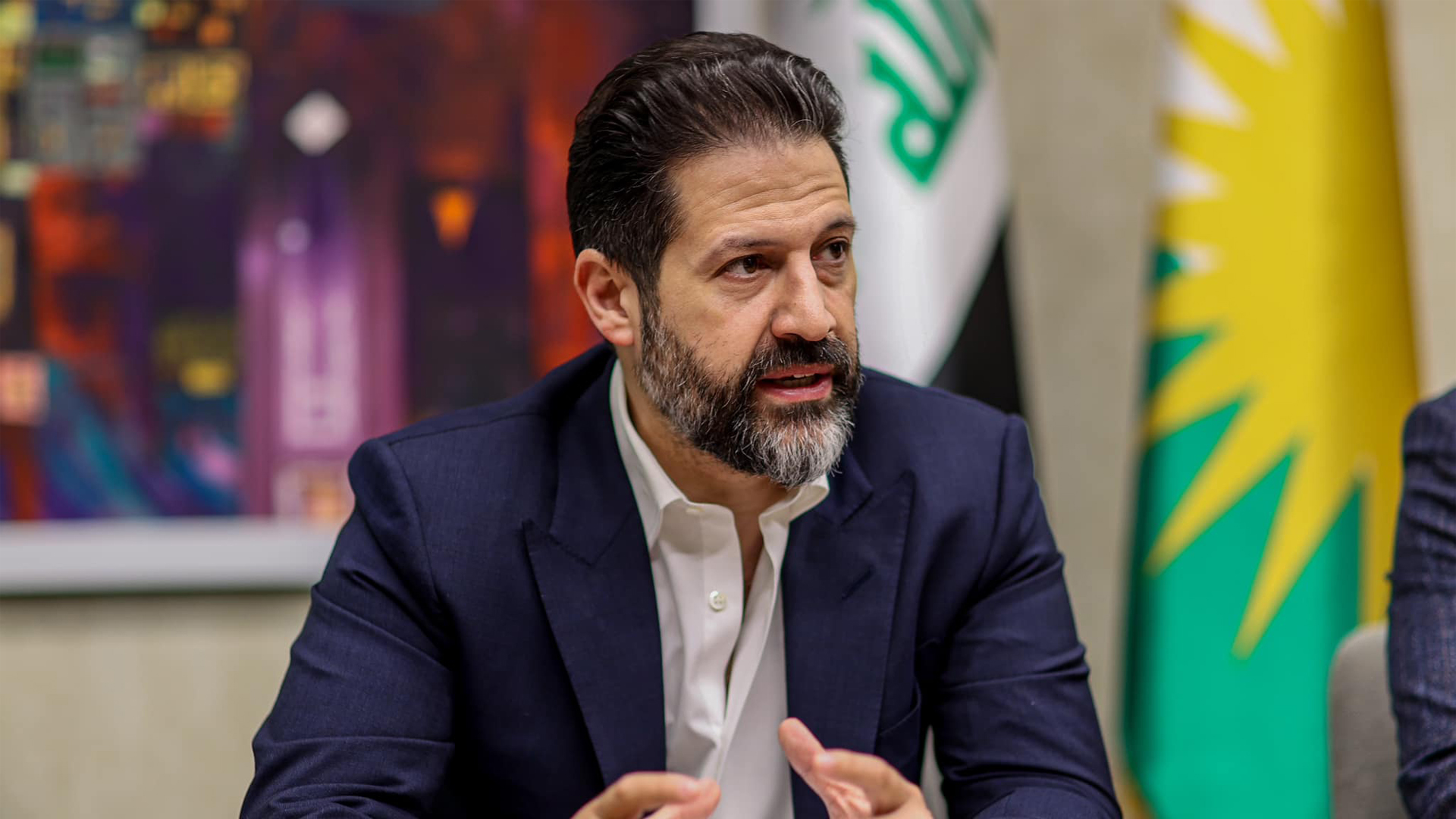
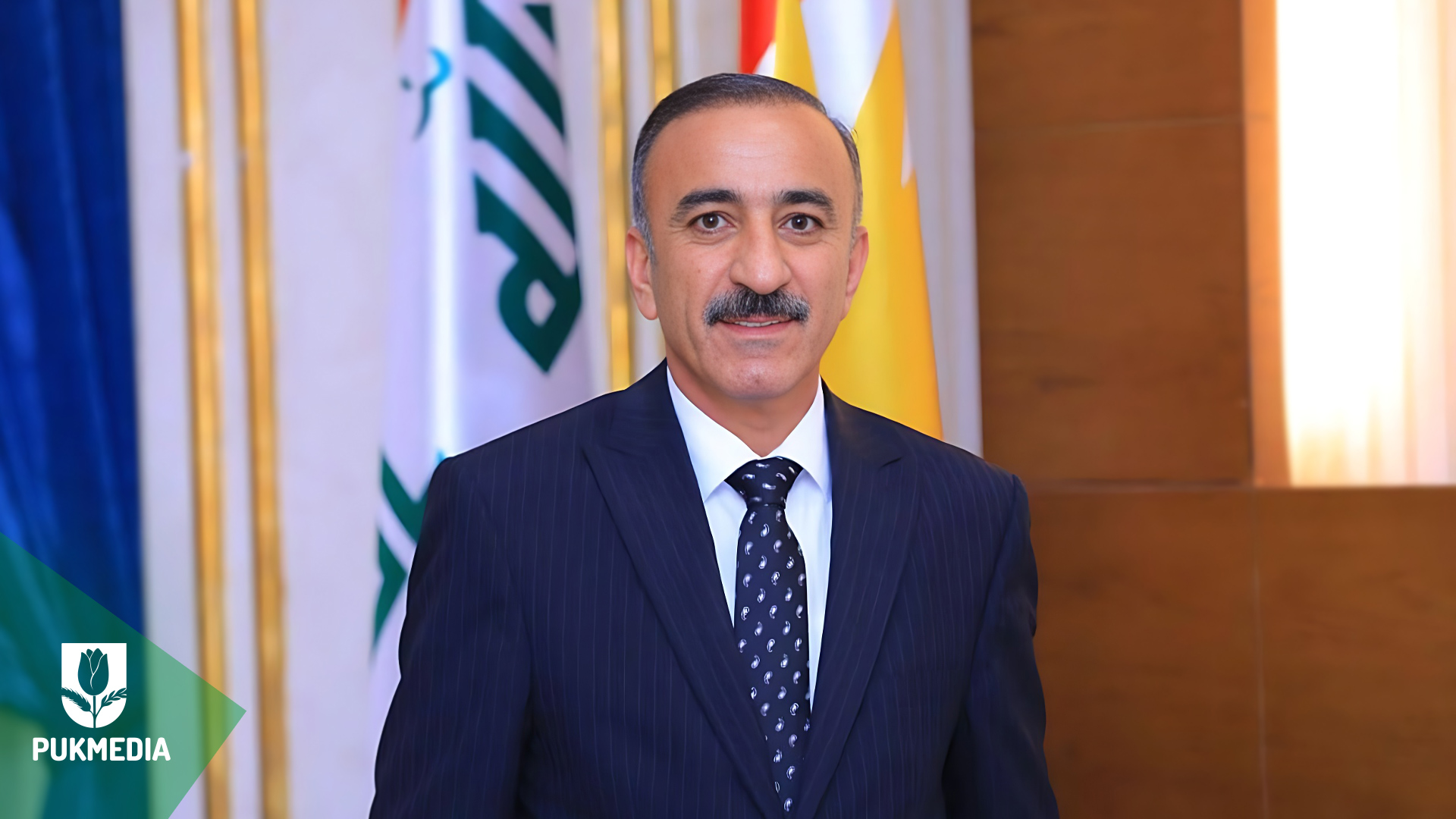
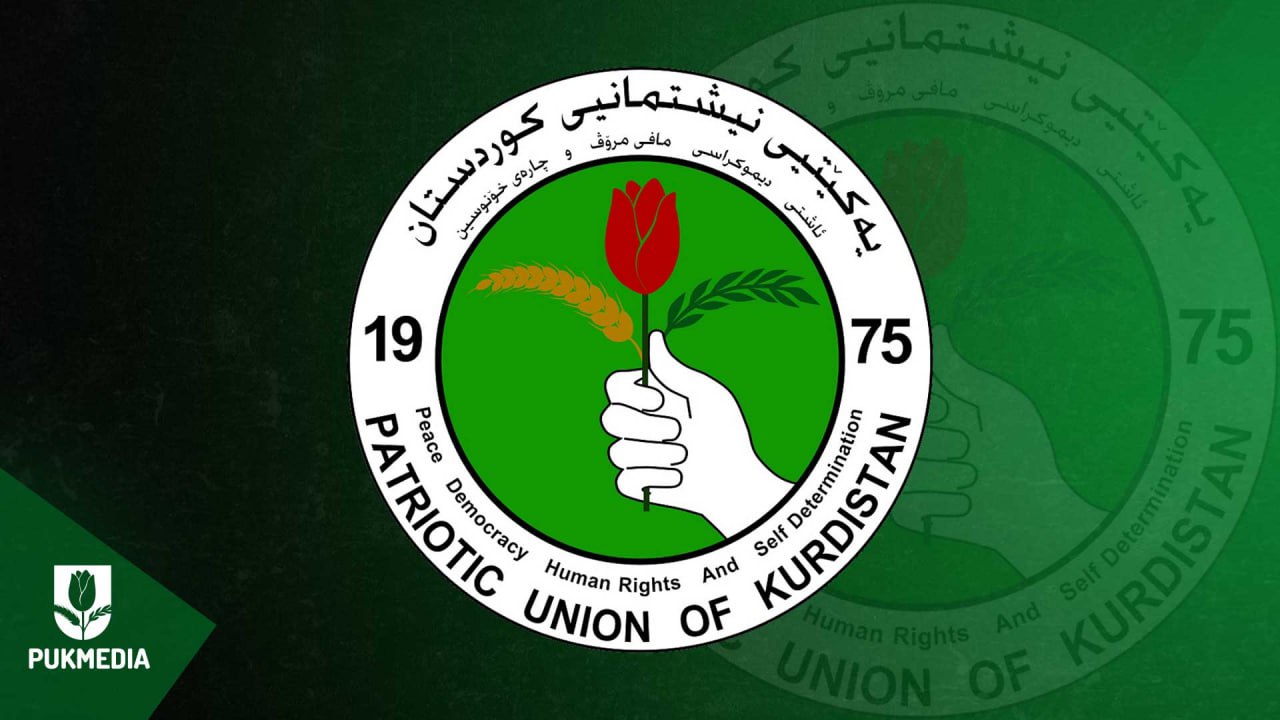
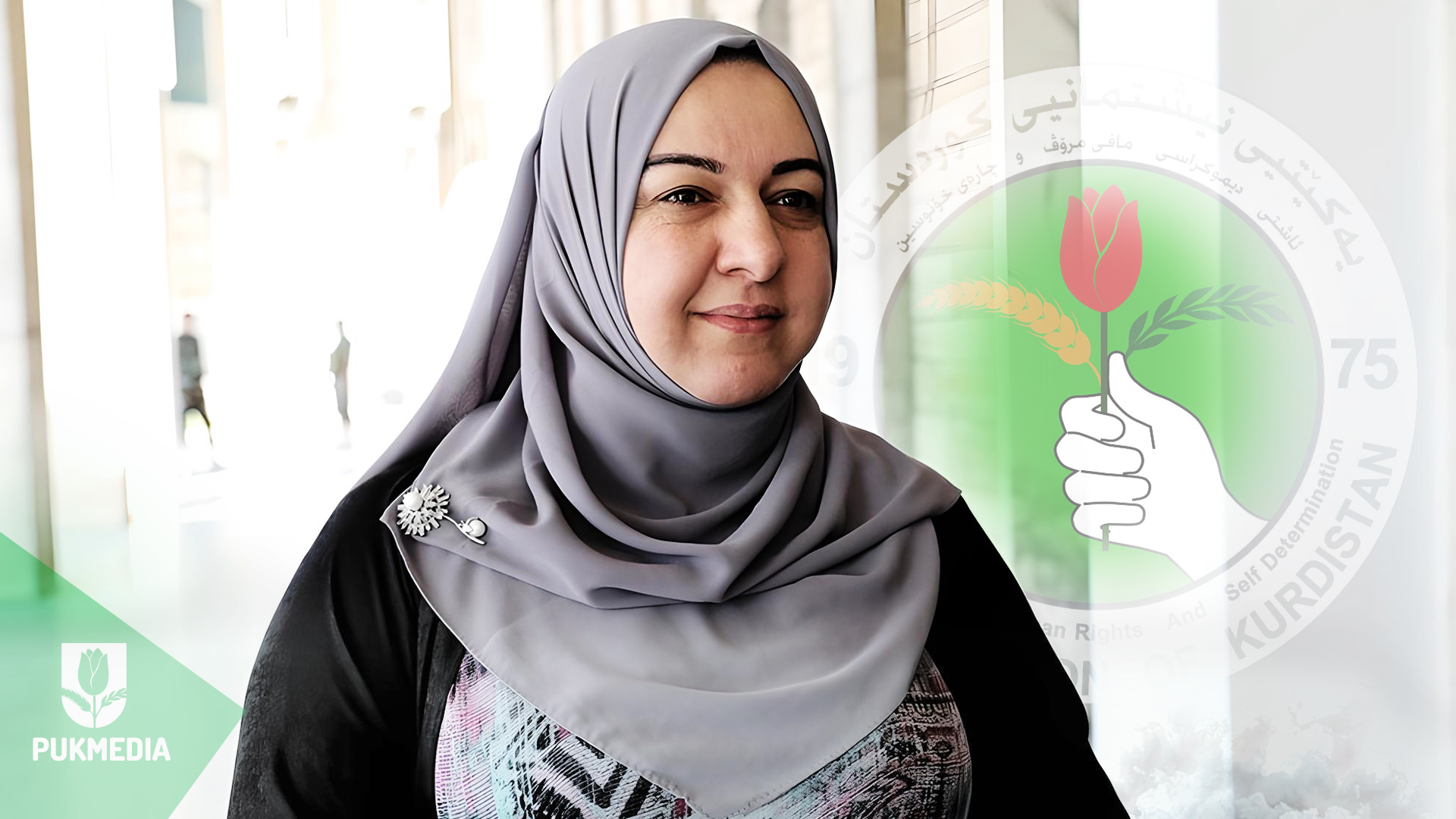
 Application
Application


